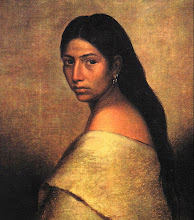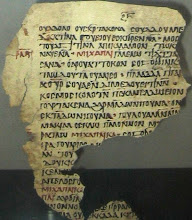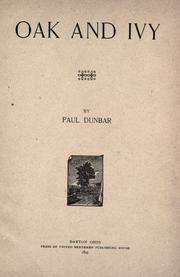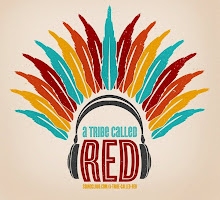 I have it! I finally have it! I've been in and out of the same antiquarian bookshop a hundred times looking at the same book for months, just to make sure that it had not been sold. Everytime I told myself 'it will not get sold, who buys these kinds of books anyway. Besides me..' (to my misfortune, I could never afford the book). But experience taught me that it is not the right attitude when you really want something (that experience had me on the verge of tears, I remember). So I did what every person in their right mind would do; I haggled the price. In that moment I hoped that the man I was negotiating the price with, had not been in the shop half the times I had left the place empty-handed. 5 minutes later I left the shop with a smile that would have seemed to scare every stoic Dane passing my way.
I have it! I finally have it! I've been in and out of the same antiquarian bookshop a hundred times looking at the same book for months, just to make sure that it had not been sold. Everytime I told myself 'it will not get sold, who buys these kinds of books anyway. Besides me..' (to my misfortune, I could never afford the book). But experience taught me that it is not the right attitude when you really want something (that experience had me on the verge of tears, I remember). So I did what every person in their right mind would do; I haggled the price. In that moment I hoped that the man I was negotiating the price with, had not been in the shop half the times I had left the place empty-handed. 5 minutes later I left the shop with a smile that would have seemed to scare every stoic Dane passing my way.As soon as I had found the most desolate corner in the metro I pulled out my copy of America Needs Indians! by Iktomi Hicala from 1937 and turned the dry pages of the book.
 The man was truly wise but I could barely find anything on him. My first problem was whether his name is Iktomi Hicala or Iktomi Lila Sica. He introduces the book with a letter to the Commissioner of Indian Affairs, John Collier, signed Iktomi Lila Sica, and when you turn the page and read above the title of the book, it states: "Blame only Iktomi Hicala and thank The Indians and their friends who were of aid to This World's Worst Book."
The man was truly wise but I could barely find anything on him. My first problem was whether his name is Iktomi Hicala or Iktomi Lila Sica. He introduces the book with a letter to the Commissioner of Indian Affairs, John Collier, signed Iktomi Lila Sica, and when you turn the page and read above the title of the book, it states: "Blame only Iktomi Hicala and thank The Indians and their friends who were of aid to This World's Worst Book."The only useful information on the internet is a fascinating passage from a book called Conservation Refugees: the Hundred-Year Old Conflict between Global Conservation and Native Peoples by Mark Dowie where it says that Lakota Chief Iktomi Lila Sica made a proposal in 1930 to have their own Community Conservation Area in South Dakota which would hold an Indian University that would teach Lakota ecological knowledge and culture. The proposal was rejected but the idea was carried through in the 70s by the Blackfeet, Ogala Sioux and Havasupi reservations which established parks within or close to their land. 40 years. I wonder how the land and the conditions for the Lakota people and others had been today if they were given the acceptance to fulfill their ideas.
 Ikotomi writes in the spirit of Iktomi, the spider-trickster. He writes on subjects so serious and crucial, for example the rightful 'owners' of America, politics, economy, race, civilization and culture; subjects which may evoke anger, but are handled with such a wit and straight, profound seriousness that leaves you wondering, thinking and soaking up all his words and drawings.
Ikotomi writes in the spirit of Iktomi, the spider-trickster. He writes on subjects so serious and crucial, for example the rightful 'owners' of America, politics, economy, race, civilization and culture; subjects which may evoke anger, but are handled with such a wit and straight, profound seriousness that leaves you wondering, thinking and soaking up all his words and drawings. His purpose with the book, as he wrote in the letter addressed to John Collier, is to prove he doesn't know a thing and at that point he has already won a hundred battles.
His purpose with the book, as he wrote in the letter addressed to John Collier, is to prove he doesn't know a thing and at that point he has already won a hundred battles.
 Iktomi's book is a collection of thoughts and 'non-art', however, the product of one man's creativity woven together into a whole, like a spider web, of significant threads.
Iktomi's book is a collection of thoughts and 'non-art', however, the product of one man's creativity woven together into a whole, like a spider web, of significant threads.A people cannot live on its history alone, and Iktomi has the insight of history and economy to provoke and question the shaky foundations of America.
On top of that, he made that effort to try to gain an area for conservation and education, a solid foundation for a people with so much to teach and so much to defend and protect.

"I was standing on the highest mountain of them all, and round about beneath me was the whole hoop of the world. And while I stood there I saw more than I can tell and I understood more than I saw; for I was seeing in a sacred manner the shapes of all things in the spirit, and the shape of all shapes as they must live together like one being. And I saw that the sacred hoop of my people was one of many hoops that made one circle, wide as daylight and as starlight, and in the center grew one mighty flowering tree to shelter all children of one mother and one father. And I saw that it was holy...but anywhere is the center of the world."
Black Elk - Oglala Sioux

















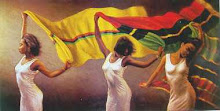






.jpg)


